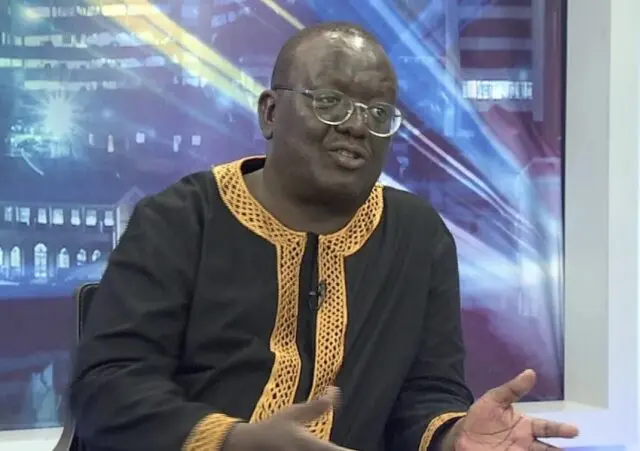Female scientists keep the wheels turning in their fields
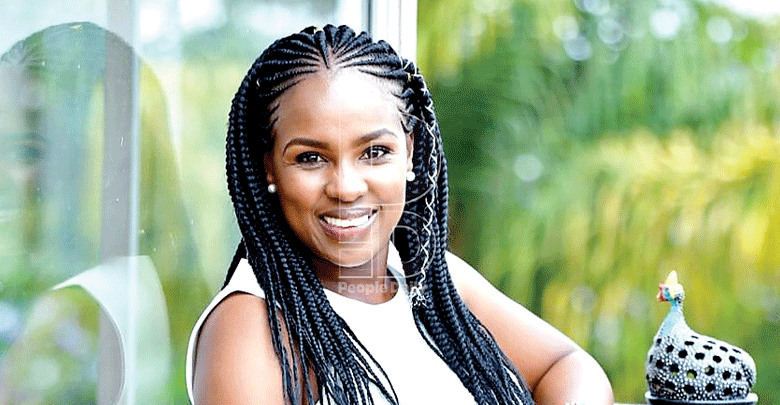
Harriet James @harriet86jim
Michelle Boit
Born and raised in Tulwet, Uasin Gishu county, Michelle Boit recalls being disappointed by the B grade she scored in her Kenya Certificate of Secondary Education.
She had all along been performing well in sciences, but the grade meant cutting short her dreams of becoming a chemical engineer.
“I had two options; study agriculture at Egerton or accounting at Stathmore, courses I wasn’t passionate about.
I went for the second option and I was among the top students in the exam. However, noticing my disinterest in the course, my late father took me to the US to pursue my dream career in chemical engineering,” she recalls.
Michelle was admitted at Texas Tech University in Chemical engineering with her uncle, Alex Boit, being instrumental in assisting her navigate the culture shock.
“We were only five girls out of a class of about 60. One of the culture shocks I had was using a scientific calculator for the first time while in a calculus class.
I was used to the traditional logbooks to solve complex mathematics and this was a setback for me,” she recalls
Consequently, Michelle had to enroll for extra classes to fully understand how to use the calculator and other computer software.
Even as she adapted in her new country, she still had to fund her studies by working from 2pm to midnight.
During her studies, she noticed there were fewer women in science and technology due to complexities of life and more of them dropped out of the programme due to its demanding nature.
“I had only three hours of sleep for almost a year. You can imagine the pressure.
It doesn’t get any easier even in the field, especially for family women since juggling family and work is hectic,” she says.
She worked in BP PLC, rising in ranks and winning various awards. In 2014, the 38-year-old engineer moved to Kenya to work at Tallow Oil, becoming the first African petroleum engineer.
“One of the challenges of working in the oil and gas industry is the environment.
It entails working in the field and some environments are quite harsh. Second, supervising men can be tough as some still hold the attitude that a woman can’t tell them anything.
There are instances where I have been in the field supervising jobs that have about 100 men and some of them would address their male colleagues assuming they are supervisors and not me, which can be quite discouraging,” she narrates.
For 10 years, she found it easy to have her male counterparts present her work as they would be taken more seriously.
However, she had the chance to present before President Uhuru Kenyatta on oil exploration in Turkana, a defining moment for her as her workmates got to know her gift.
“That was one of the highlights of my career. For a long time, I had been waiting to have a chance to just show people that I was capable of doing this and to inspire young girls that they too can dream,” she says.
Noticing the big gap in nurturing young boys and girls in engineering field, Michelle began visiting colleges and high schools to inspire girls to study STEM.
In 2014, she founded Michelle Boit Foundation to empower and mentor the youth and link them to opportunities.
“While I was working in the US, I was assigned three mentors to guide me through various aspects of my career.
I found that this was lacking when I came back to the country and began working and had to find my own footing over time,” she says.
So far she is proud of having around 150 mentees under her wings and has interacted with more than 3,000.
Presently, she is working in collaboration with Kenyatta University, in their Petroleum Engineering program.
Gladys Chepkirui Ngetich
Gladys, an engineer and Rhodes scholar, is currently working as a post-doctoral research fellow at Massachusetts Institute of Technology (MIT) US.
The recepient of both Tanenbaum Fellowship and Babaroa Excellence Award is currently undertaking her postdoctoral research at Space Enabled at MIT under Schmidt Science Fellowship.
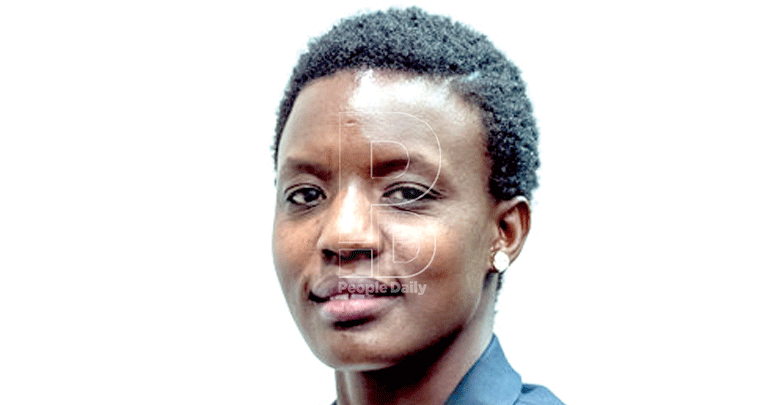
She completed her PhD in Engineering Science (Aerospace) at Oxford Thermofluids Institute at the University of Oxford in 2019 and during her PhD, in which she researched on efficient ways of cooling jet engines.
But life was not always as glamorous for the 30-year-old. Born and raised in Olenguruone in Nakuru county, Gladys recalls how challenging it was growing up with limited resources.
“Though the school (Lelaibei Primary) I went to had limited resources and I went to school barefoot, I am grateful for the 298 out of 500 marks I scored in KCPE.
Our floors were not cemented, most classrooms didn’t have window panes and had mud walls.
We didn’t have tarmac roads, electricity, no tap water and had to sweep floors twice a week to keep off the flees and crawling insects,” she says.
Her marks saw her attend Mercy Girls Secondary School, where she emerged the best student in the school and district.
She ended up at the Jomo Kenyatta University of Agriculture and Technlology to study BSc in Mechanical Engineering.
That her father and and two brothers are engineers inspired her as well. This is where her interest in mechanical engineering, particularly in Thermofluids, began.
“I was searching for a postgrad project and I was keen to take up a thermofluids related project and that’s how I came across my PhD project (aircraft engine cooling) at the University of Oxford eventually ending up in aerospace,” she narrates.
The industry mainly deals with development of aircraft and spacecraft.
She is currently the co-founder of the ILUU, a Nairobi-based non-profit that aims to inspire girls and women.
“I am planning to work in aerospace/space related fields. I want young people, especially girls, to know the sky is the limit.
With all the hardship I have experienced, I was still able to achieve highly and that tells you that if you believe in yourself, nothing can stop you,” she says.
Winfred Mwende Mutinda
When she lost her father at age eight, Winfred Mutinda knew only academic excellence would give her the life of her dreams.
The fourth born raised in Mwaani Village, Makueni county, not only performed well in class, but also realised she had great interests in the sciences.
In high school, Winfred knew her calling would lead her to engineering.
I went for it after qualifying and was admitted at the University of Nairobi for my undergraduate degree,” she says.
However, since she did exceptionally well in KCSE, some relatives thought that should have pursued Medicine.
“I believed my choice was the best and I am glad I pursued engineering. It is a career that offers solutions to many challenges facing humanity. It is a fulfilling and rewarding career for women,” she adds.
Others thought she was too beautiful to pursue a technical course and felt that she should have chosen a ‘feminine course’. She recalls they were fewer than 20 women in a class of almost 100.
After graduation, Winfred started off in the telecommunications industry before moving to the energy sector.
“While engineering is my occupation, I believe my work is to mentor young girls and women and encourage them to pursue STEM-related careers.
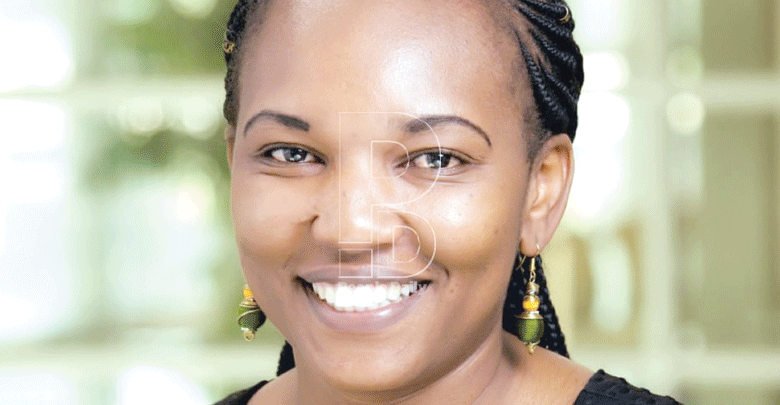
I have dedicated myself to this to inspire and motivate them. I promote engineering as a fulfilling, exciting and rewarding career for women,” says the engineer working as a Transmission System Planning Engineer at the Kenya Electricity Transmission Company Limited.
In May 2017, Winfred had a turning point, having survived a tragic road accident.
She realised she needed to live a purposeful life and began showing up to leverage on opportunities that promoted her personal and professional growth.
In January 2018, she started the “Blessed-To-Bless” Community Initiative, aimed at giving back to the community.
Winfred is a 2019 Mandela Washington Fellow, alumni of YALI Women in African Power Leadership Programme 2018, the Women in Energy East Africa Community Student Award winner 2019 and the Africa Queen of Energy Philanthropy Award winner 2020.
She is also among the 158 Kenyans honoured with the Head of State Commendation Award in 2020.
Winfred Mwende Mutinda
When she lost her father at age eight, Winfred Mutinda knew only academic excellence would give her the life of her dreams.
The fourth born raised in Mwaani Village, Makueni county, not only performed well in class, but also realised she had great interests in the sciences.
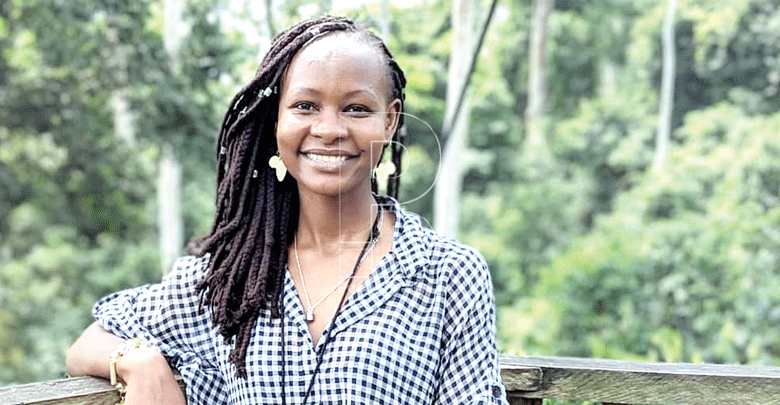
In high school, Winfred knew her calling would lead her to engineering.
“I knew it was a career many thought best fit men, and I was curious to know what it really took to be a female engineer.
I went for it after qualifying and was admitted at the University of Nairobi for my undergraduate degree,” she says.
However, since she did exceptionally well in KCSE, some relatives thought that should have pursued Medicine.
“I believed my choice was the best and I am glad I pursued engineering. It is a career that offers solutions to many challenges facing humanity. It is a fulfilling and rewarding career for women,” she adds.
Others thought she was too beautiful to pursue a technical course and felt that she should have chosen a ‘feminine course’. She recalls they were fewer than 20 women in a class of almost 100.
After graduation, Winfred started off in the telecommunications industry before moving to the energy sector.
“While engineering is my occupation, I believe my work is to mentor young girls and women and encourage them to pursue STEM-related careers.
I have dedicated myself to this to inspire and motivate them. I promote engineering as a fulfilling, exciting and rewarding career for women,” says the engineer working as a Transmission System Planning Engineer at the Kenya Electricity Transmission Company Limited.
In May 2017, Winfred had a turning point, having survived a tragic road accident.
She realised she needed to live a purposeful life and began showing up to leverage on opportunities that promoted her personal and professional growth.
In January 2018, she started the “Blessed-To-Bless” Community Initiative, aimed at giving back to the community.
Winfred is a 2019 Mandela Washington Fellow, alumni of YALI Women in African Power Leadership Programme 2018, the Women in Energy East Africa Community Student Award winner 2019 and the Africa Queen of Energy Philanthropy Award winner 2020. She is also among the 158 Kenyans honoured with the Head of State Commendation Award in 2020.
Simotwo Faith Zainabu
Zainabu had medicine on her mind since she was young but scoring an A- in KCSE meant she had to consider other options when it comes to a degree.
“I remember one of my uncles had promised he’d help me get into KMTC to study clinical medicine.
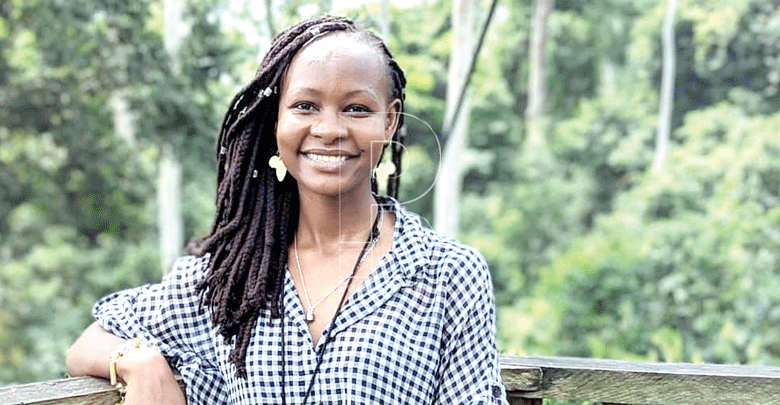
So, I didn’t revise courses. But he didn’t fulfill his promise and during the second revision I decided to pick something easy and exciting: double major BSc in Mathematics and Computer Science in 2012,” she recalls.
She was admitted to JKUAT, Taita Taveta Campus and one question she battled with was whether she would get employment after her studies.
“They would tell me mathematics is hard and for the male gender. Though challenging at times, I find it to be one of the easiest subjects and anyone can study it.
Some teachers intentionally make the subject seem hard and most students are not aware of careers available in real life,” she says
Having gone to the best schools which focused more on numeracy rather than literacy also birthed the confidence to study mathematics.
Zainab has an elder sister, now a mechanical engineer who was key in inspiring her to join the field.
“My passion and skill for the subject intensified when my mum passed on as it would help me forget all the troubles. To date, math is therapeutic for me; it’s a hobby that I disappear into,” she says.
In 2018, Zainab received a scholarship to advance her studies as a Mandela Rhodes Scholar in Stellenbosch University.
The scholarship is aimed for young leaders from Africa to further their education in South Africa. She had two choices: Masters in Public Policy and Management and a Masters in Mathematics.
She opted for Mathematics and focused on algorithms to calculate network reliability.
Although in her current position at an international organisation she is does not practice mathematics as much, she is the founder of Steam-Lab Kenya, established with Pauline Gitau, a friend from high school, .
“It is a Science, Technology, Engineering, Arts and Math centered initiative whose mission is to increase the level of learner-tutor contact and provide pathways for technology understanding and development among young people in Kenya,” she says.
Prof Mary Abukutsa-Onyango
At the age of 10, Prof Mary knew she would have to be involved in something related to food after watching the struggle her mother faced in putting put food on the table.
She grew up in Vihiga county, Emuhaya sub-county and studied in Ematsuli Primary School, where she excelled in her studies, especially the sciences.
She attended Bunyore Girls High School and proceeded to Ng’iya Girls High School in Siaya county, where she studied Chemistry, Mathematics and Biology. However, her choice to study agriculture did not go well with her teachers since they thought Agriculture was for poor students.
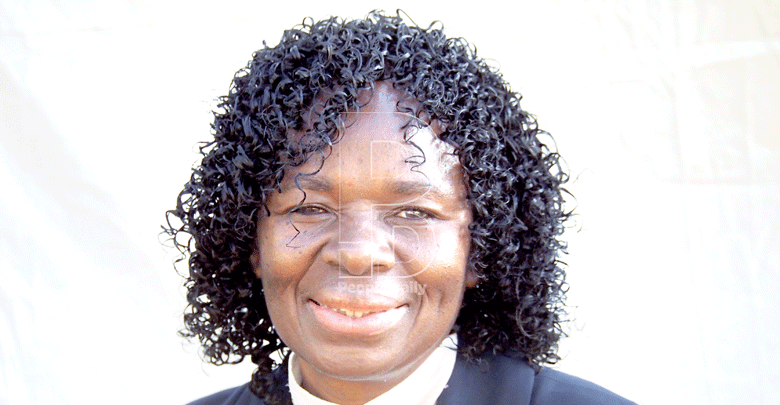
“I chose agriculture for two reasons one because I saw my mother struggle to put food on the table and secondly I wanted to study African indigenous crops, especially vegetables,” she explains.
That’s how she ended up pursuing a degree in BSc-Agriculure and MSc-Agronomy at University of Nairobi and later on PhD Horticulture at the University of London (Wye College). Upon completing her studies, she came back to teach at JKUAT.
“In 1991, I initiated the African indigenous vegetables Research Programe at JKUAT and at Maseno University in 1995 to strategically reposition african indigenous vegetables in the horticulture sector so they could play their rightful role in food security and nutrition,” she notes.
Prof Mary is glad that she pushed on with her course as some outcomes of her research and studies have resulted in repositioning of African indigenous vegetables to be recognised globally.
It has also resulted in development of agronomic and utilisation technical information and commercialisation of indigenous vegetables.
Prof Mary has received over 10 awards including an Elder of the Order of the Burning Spear in 2010, African Union Award, in 2010, Edinburgh Medal in 2014 and in 2017, she was nominated as African Academy of Sciences fellow.
In 2019, she was nominated as a nutrition champion by Scaling up Nutrition, Civil Society Alliance and Nutrition International.
In 2020, Prof Mary was appointed to be a member of the Governing Council of the African academy of Sciences (AAS) and as the Chairperson of the Advisory Board of African Research Universities Alliance (ARUA) Centre of Excellence in Non-Communicable Diseases.
Dr Evelyn Njurai
During her early education, Dr Evelyn Njurai did mathematics like any other subject. However, when she joined secondary school, she realised she was competing with the best in class.
With a lot of encouragement from her parents since the father liked the subject, she picked momentum and moved forward.
Though there was stiff competition in her school, she always emerged among the best students in mathematics.
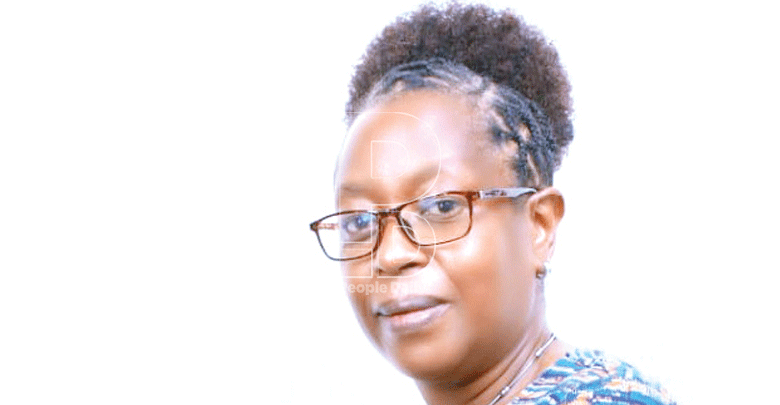
After high school, she joined Egerton University for a BSc in Education and proceeded to Kenyatta University for a Master’s degree in Pure Mathematics and later a PhD in Mathematics Education from The University of South Africa.
“Many people seem to wonder how I made it in this area, yet I think they have handled tougher subjects than mathematics, such as literature.
I see the issue of ease and difficulty as relative,” says the lecturer in the Department of Curriculum Instruction and Media, School of Education and Human Resource Development at Kisii University.
To ensure the big gender disparity in mathematics-related subjects is bridged, Dr Njurai mentors younger women to engage effectively with the subject and careers related to it.
However, she encourages mixed gender mentorship for real life competition and engagement.
She also engages parents on the need to provide opportunity and support for girls to effectively engage with mathematics and pursue careers in it.
She has also started different outreach programmes such as GirlPower Community Engagements Flagship, where they engage girls in STEM subjects.
She has been researching on girls’ education through Girls Education Challenge.
The findings have been published by Women Education Researchers of Kenya (WERK), in which she is a member.
She mentors undergraduate and postgraduate students with an interest in STEM.
“Together with my colleague Omari Mashaka, we conduct mathematics camps during school holidays through a consultancy called MATHSNERVE.
We relate mathematics content (in form of topics) and concepts within and across class levels. We also relate them to the sciences and enjoy playing mathematical games,” she explains.
Another outreach programme is through Education in a Suitcase (EIAS), in which she has partnered with Prof Steffason Gunnar and his team (Iceland University) to work with students from low income areas in Kenya to access mathematics content and take mathematics drills using technology.
Previously, she used to volunteer to teach mathematics to those behind bars in their education centres.
Dr Njurai is also an author of Dictionary of Mathematics for Secondary Schools, published by Kenya Literature Bureau in 2019.
The dictionary serves as a single tool for reference of secondary mathematics across the classes, helps to understand meaning of mathematics terms and phrases as used in mathematics context
“The aim of coming up with this dictionary is to bring understanding of mathematical terms and language of mathematics to the high school learners.
My PhD was in Mathematics Education in context of language diversity. This means looking at how diverse language backgrounds facilitate or inhibit understanding of mathematics which is taught in English in Kenya,” she adds. – Milliam Murigi






